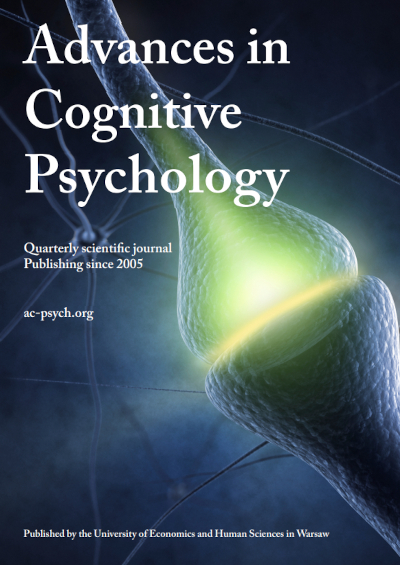Archive of all online content
-
Volume 21 Issue 4
pp. 309-500
(16 November 2025) -
Volume 21 Issue 3
pp. 212-308
(2 September 2025) -
Volume 21 Issue 2
pp. 120-211
(25 May 2025) -
Volume 21 Issue 1
pp. 1-93
(11 March 2025)
-
Volume 20 Issue 4
pp. 237-388
(20 November 2024) -
Volume 20 Issue 3
pp. 158-236
(19 August 2024) -
Volume 20 Issue 2
pp. 80-157
(24 June 2024) -
Volume 20 Issue 1
pp. 1-79
(1 March 2024)
-
Volume 19 Issue 4
pp. 1-105
(27 December 2023) -
Volume 19 Issue 3
pp. 211-333
(25 July 2023) -
Volume 19 Issue 2
pp. 111-200
(30 June 2023) -
Volume 19 Issue 1
pp. 1-110
(31 March 2023)
-
Volume 18 Issue 4
pp. 243-303
(31 December 2022) -
Volume 18 Issue 3
pp. 165-202
(30 September 2022) -
Volume 18 Issue 2
pp. 85-164
(30 June 2022) -
Volume 18 Issue 1
pp. 1-84
(31 March 2022)
-
Volume 17 Issue 4
pp. 250-291
(31 December 2021) -
Volume 17 Issue 3
pp. 193-249
(30 September 2021) -
Volume 17 Issue 2
pp. 99-192
(30 June 2021) -
Volume 17 Issue 1
pp. 1-98
(31 March 2021)
-
Volume 16 Issue 4
pp. 291-369
(31 December 2020) -
Volume 16 Issue 3
pp. 176-290
(30 September 2020) -
Volume 16 Issue 2
pp. 85-175
(30 June 2020) -
Volume 16 Issue 1
pp. 1-84
(31 March 2020)
-
Volume 15 Issue 4
pp. 236-317
(31 December 2019) -
Volume 15 Issue 3
pp. 169-235
(30 September 2019) -
Volume 15 Issue 2
pp. 75-168
(30 June 2019) -
Volume 15 Issue 1
pp. 1-74
(31 March 2019)
-
Volume 14 Issue 4
pp. 150-208
(31 December 2018) -
Volume 14 Issue 3
pp. 62-150
(30 September 2018) -
Volume 14 Issue 2
pp. 38-61
(30 June 2018) -
Volume 14 Issue 1
pp. 1-37
(31 March 2018)
-
Volume 13 Issue 4
pp. 267-322
(31 December 2017) -
Volume 13 Issue 3
pp. 190-266
(30 September 2017) -
Volume 13 Issue 2
pp. 121-189
(30 June 2017) -
Volume 13 Issue 1
pp. 1-120
(31 March 2017)
-
Volume 12 Issue 4 (special issue)
pp. 150-235
(31 December 2016) -
Volume 12 Issue 3
pp. 130-149
(30 September 2016) -
Volume 12 Issue 2
pp. 67-129
(30 June 2016) -
Volume 12 Issue 1
pp. 1-66
(31 March 2016)
-
Volume 11 Issue 4
pp. 118-135
(31 December 2015) -
Volume 11 Issue 3
pp. 64-117
(30 September 2015) -
Volume 11 Issue 2
pp. 31-63
(30 June 2015) -
Volume 11 Issue 1
pp. 1-30
(31 March 2015)
-
Volume 10 Issue 4
pp. 119-155
(31 December 2014) -
Volume 10 Issue 3
pp. 81-118
(30 September 2014) -
Volume 10 Issue 2
pp. 32-80
(30 June 2014) -
Volume 10 Issue 1
pp. 1-31
(27 February 2014)
-
Volume 9 Issue 4
pp. 156-223
(31 December 2013) -
Volume 9 Issue 3
pp. 112-155
(24 October 2013) -
Volume 9 Issue 2
pp. 53-111
(30 June 2013) -
Volume 9 Issue 1
pp. 1-52
(31 March 2013)
-
Volume 8 Issue 4
pp. 267-295
(31 December 2012) -
Volume 8 Issue 3
pp. 210-266
(27 September 2012) -
Volume 8 Issue 2
pp. 70-209
(28 June 2012) -
Volume 8 Issue 1
pp. 1-69
(29 March 2012)
-
Volume 7 Issue 2
pp. 55-156
(31 December 2011) -
Volume 7 Issue 1
pp. 1-54
(31 March 2011)
-
Volume 6 Issue 6
pp. 1-141
(31 December 2010)
-
Volume 5 Issue 5
pp. 1-134
(31 December 2009)
-
Volume 4 Issue 1
pp. 1-14
(31 March 2008)
-
Volume 3 Issue 4
pp. 419-465
(31 December 2007) -
Volume 3 Issue 3
pp. 363-417
(30 September 2007) -
Volume 3 Issue 1
pp. 1-361
(31 March 2007)
-
Volume 2 Issue 4
pp. 239-276
(31 December 2006) -
Volume 2 Issue 2
pp. 99-237
(30 June 2006) -
Volume 2 Issue 1
pp. 1-97
(31 March 2006)
-
Volume 1 Issue 1
pp. 1-16
()
Volume 11 Issue 2 (2015)
Invisible Stimuli, Implicit Thresholds: Why Invisibility Judgments Cannot be Interpreted in Isolation
Thomas Schmidt

Thomas Schmidt, Faculty of Social Sciences, Experimental Psychology Unit, University of KaiserslauternErwinSchrödinger-Str. Geb. 57, 67663 Kaiserslautern, Germany.
E-mail: thomas.schmidt@sowi.uni-kl.de
Some studies of unconscious cognition rely on judgments of participants stating that they have “not seen” the critical stimulus (e.g., in a masked-priming experiment). Trials in which participants gave invisibility judgments are then treated as those where the critical stimulus was “subliminal” or “unconscious,” as opposed to trials with higher visibility ratings. Sometimes, only these trials are further analyzed, for instance, for unconscious priming effects. Here I argue that this practice requires implicit assumptions about subjective measures of awareness incompatible with basic models of categorization under uncertainty (e.g., modern signal-detection and threshold theories). Most importantly, it ignores the potential effects of response bias. Instead of taking invisibility judgments literally, they would better be employed in parametric experiments where stimulus visibility is manipulated systematically, not accidentally. This would allow studying qualitative and double dissociations between measures of awareness and of stimulus processing per se.
Keywords: visibility judgments, psychophysics, thresholds, signal detection, statistical artifactIs Semantic Processing During Sentence Reading Autonomous or Controlled? Evidence from the N400 Component in a Dual Task Paradigm
Annette Hohlfeld, Manuel Martín-Loeches, Werner Sommer

Annette Hohlfeld, Neurologic Rehabilitation Center Wolletzsee Zur Welse 2, 16278 Wolletz, Germany.
E-mail: annette.hohlfeld@yahoo.de
The present study contributes to the discussion on the automaticity of semantic processing. Whereas most previous research investigated semantic processing at word level, the present study addressed semantic processing during sentence reading. A dual task paradigm was combined with the recording of event-related brain potentials. Previous research at word level processing reported different patterns of interference with the N400 by additional tasks: attenuation of amplitude or delay of latency. In the present study, we presented Spanish sentences that were semantically correct or contained a semantic violation in a critical word. At different intervals preceding the critical word a tone was presented that required a high-priority choice response. At short intervals/high temporal overlap between the tasks mean amplitude of the N400 was reduced relative to long intervals/low temporal overlap, but there were no shifts of peak latency. We propose that processing at sentence level exerts a protective effect against the additional task. This is in accord with the attentional sensitization model (Kiefer & Martens, 2010), which suggests that semantic processing is an automatic process that can be enhanced by the currently activated task set. The present experimental sentences also induced a P600, which is taken as an index of integrative processing. Additional task effects are comparable to those in the N400 time window and are briefly discussed.
Keywords: N400, dual task, semantic processing, reading, automaticity, P600Expertise, Working Memory and Articulatory Suppression Effect: Their Relation with Simultaneous Interpreting Performance
Irene Injoque-Ricle, Juan Pablo Barreyro, Jesica Formoso, Virginia I. Jaichenco

Irene Injoque-Ricle, Instituto de Investigaciones, Facultad de Psicología, Universidad de Buenos Aires. Gral. Juan Lavalle 2353 (C1052AAA), Ciudad Autónoma de Buenos Aires, Argentina.
E-mail: iinjoque@psi.uba.ar
Simultaneous interpreting is a complex bilingual verbal activity that involves the auditory perception of an oral communication and the production of a coherent discourse. One of the cognitive functions underlying simultaneous interpreting is working memory. The aim of this work was to study the relationship between expertise, working memory capacity and articulatory suppression effect, and the ability to perform simultaneous interpreting. For this purpose, four working memory tasks and one simultaneous interpreting task were administered to thirty Spanish-speaking professional English interpreters. Results showed that simultaneous interpreting ability might be supported by the working memory´s capacity to store or process information, but also by the ability of the interpreter to cope with the articulatory suppression effect. We conclude that interpreters may have or develop resources to support the effect caused by articulatory suppression.
Keywords: working memory, articulatory suppression, simultaneous interpreting


